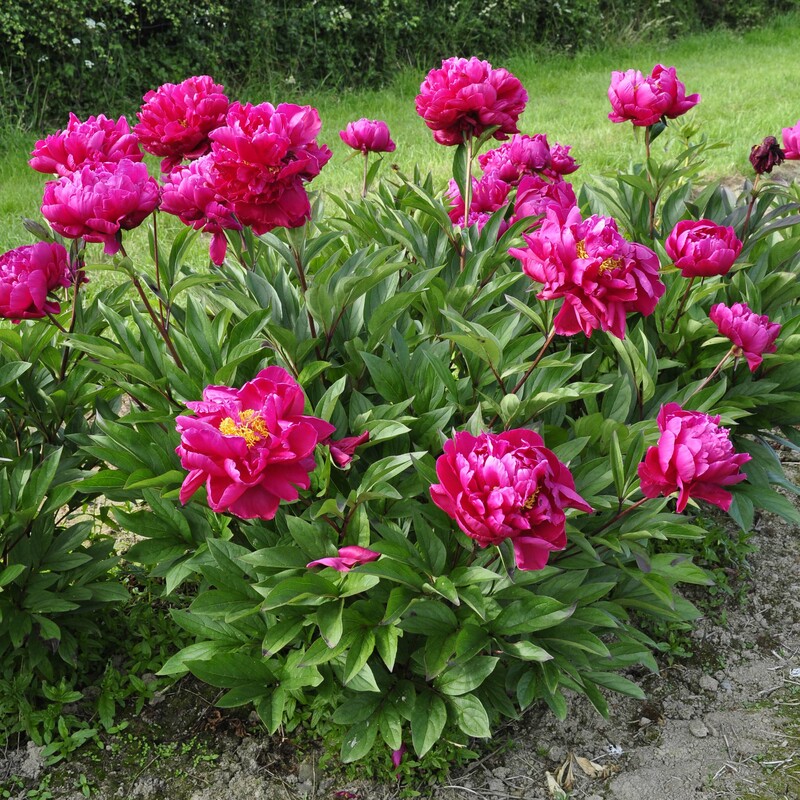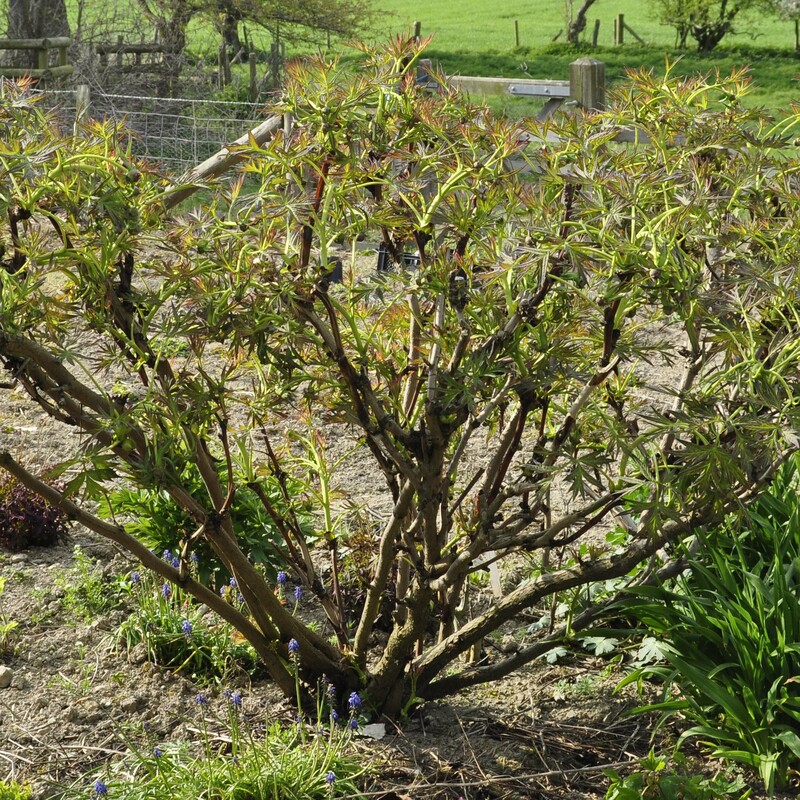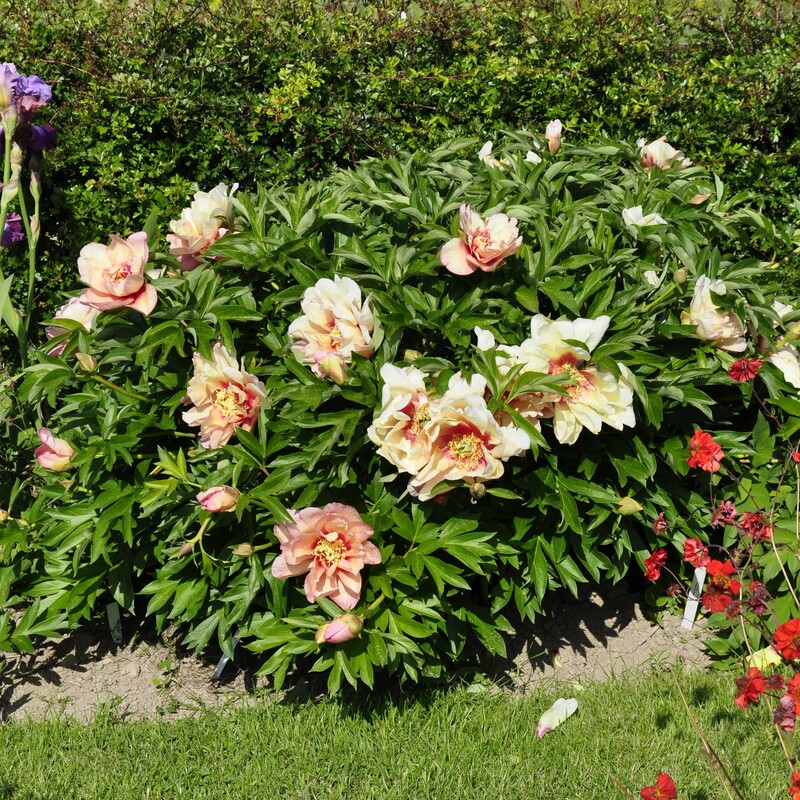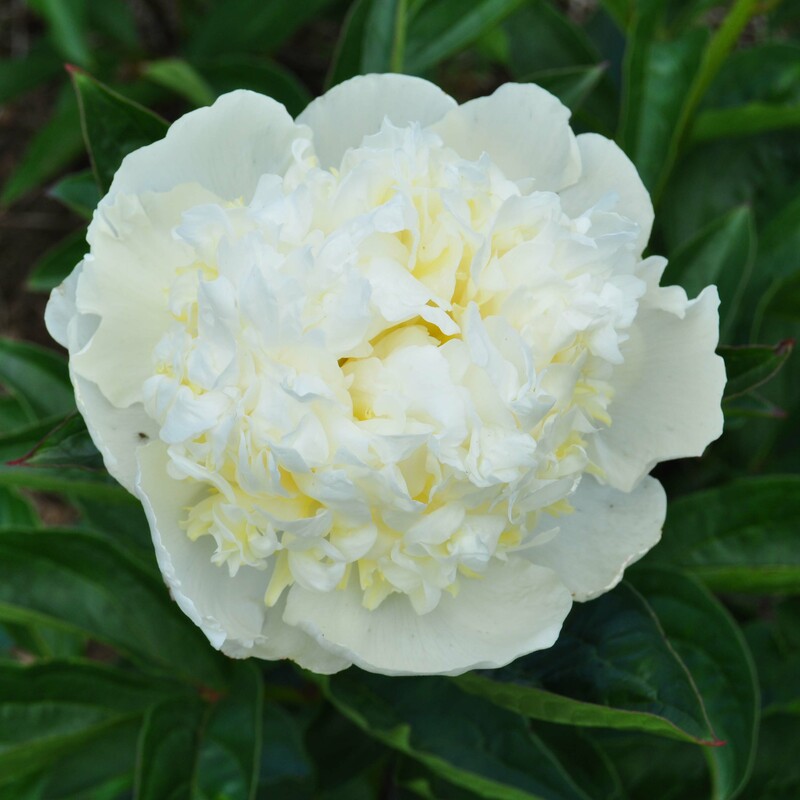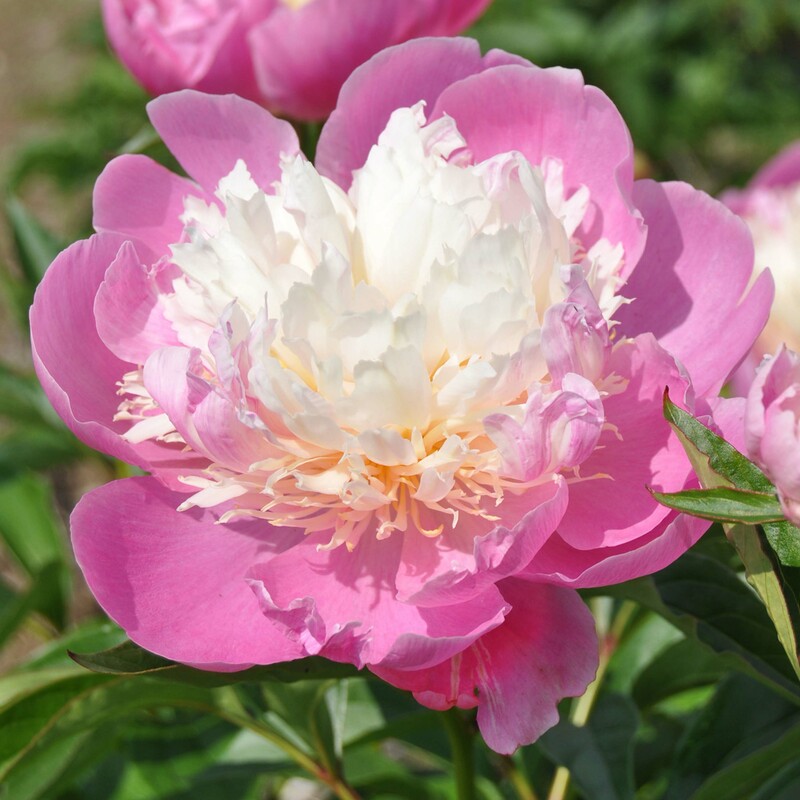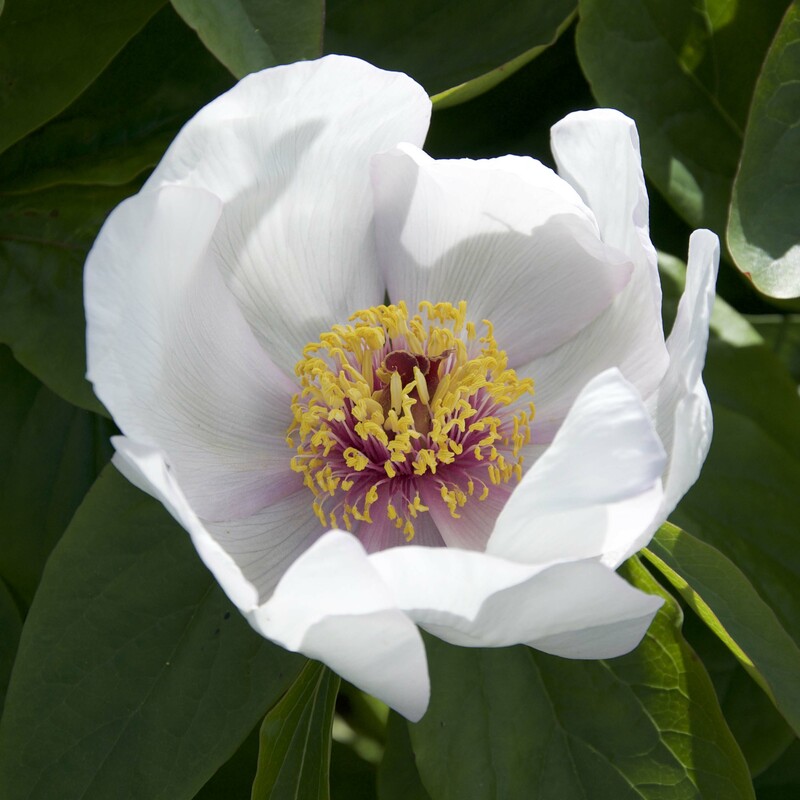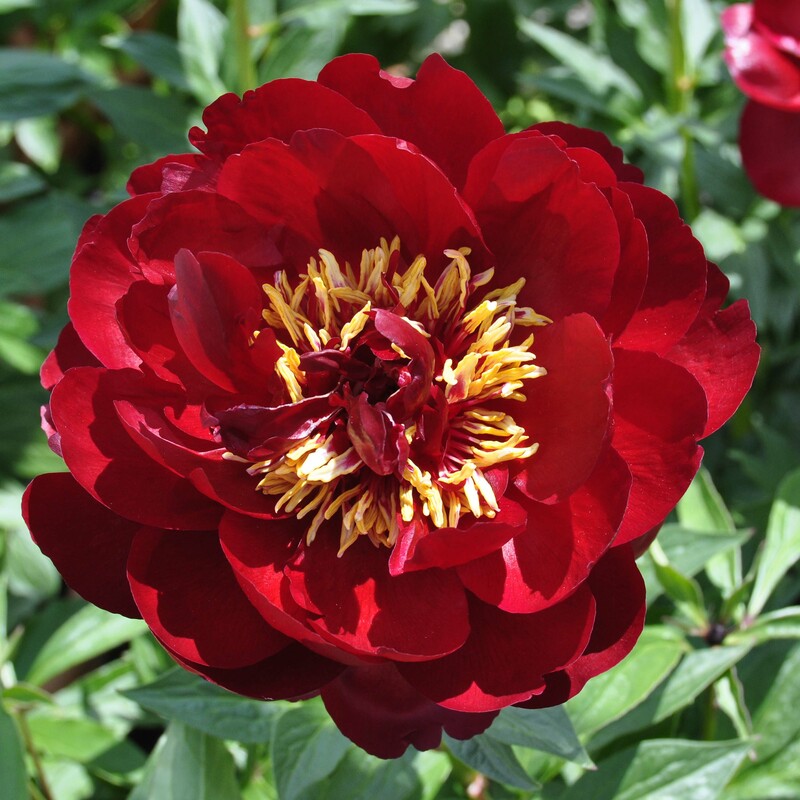Shop Peonies - Page 10
Why Buy Peonies
Of all the perennial plants we grow in our gardens peonies must be some of the most glamorous. Big and beautiful peonies bloom from May to June in tones of white, pink, red, yellow and even orange. They are carried on long stems above a clump of handsome, deeply divided leaves that turn lovely shades of red in autumn. All the peonies we sell are herbaceous (die back in autumn). Easy to grow, once established peonies needing very little attention and very long lived. Peonies can also be really fragrant and make wonderful cut flowers.
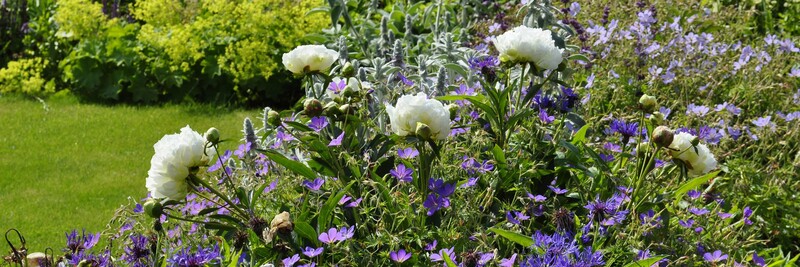
Types Of Peonies
Peonies can be divided into three groups; herbaceous peonies, woody peonies (or tree peonies) and intersectional peonies (or Itoh peonies). Simply put, the stems of herbaceous peonies die back in autumn and grow again in spring, whereas the stems of woody peonies are just that - woody and remain all year round. Intersectional peonies have stems that are both herbaceous, dying back in autumn, and woody like woody peonies.
Above: Herbaceous peony 'Adolphe Rousseau', Woody tree peony P. delavayii, Intersectional peony 'Callie's Memory'
Peony flowers vary in shape. You can buy peony plants that produce flowers with just a single row of petals, or double peonies, which have many petals.
Although double peonies are the ones most commonly available to gardeners, Japanese peonies are the most extraordinary in terms of form. These have a central mound of slim petals, some of which are of a different colour to the outer petals. Single and semi-double peonies are less likely to fall over in gardens that are prone to wind.
Above: Double flowered peony 'Bowl of Cream', Japanese peony 'Bowl of Beauty', single 'Picotee', semi-double 'Buckeye Belle'
How To Grow Peonies
Hardy peonies like a soil that does not stay wet and as much sun as possible. They will grow in clay soil as long as it does not stay wet for any length of time and although they like a sunny site, they are happy with a small amount of shade during the summer months.
Bare root peonies
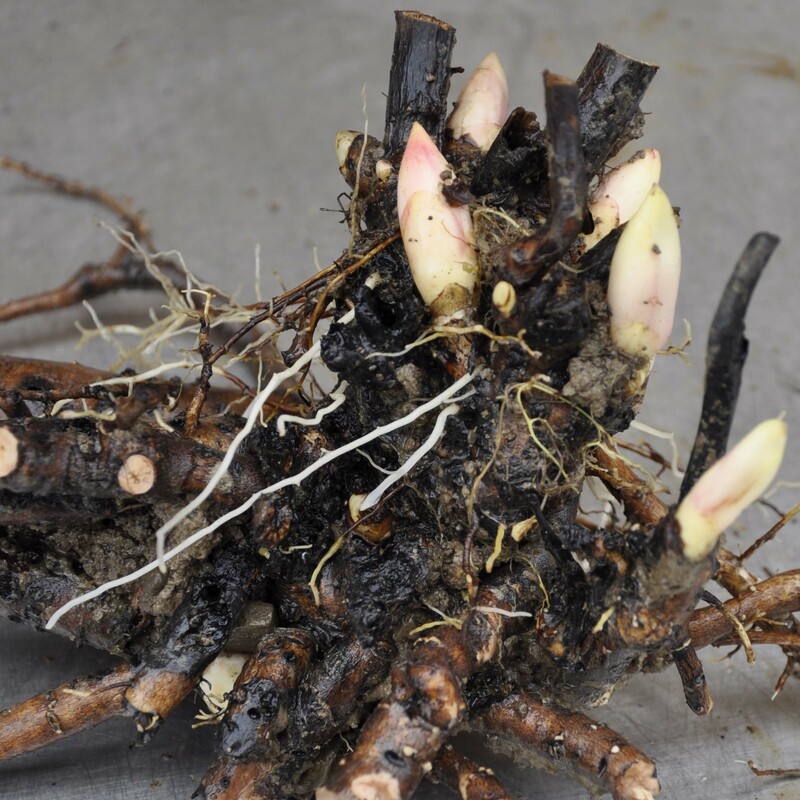 When buying peony plants, we deliver them with bare roots. When you get your peony, dig a hole wide enough and deep enough to accommodate the roots. Herbaceous peonies need to be planted with the eyes (the red leaf buds) no more than 5cm below the soil surface. If they are planted too deeply, the plant may struggle to produce flowers. Intersectional peonies are planted similarly to herbaceous peonies. Ignore the level of the woody stems and, using the red eyes on the wide crown as your guide to depth, plant these around 5cm below the soil. Place the plant in the hole following the planting rules below, and cover with soil. Unless a period of dry weather is forecast, they don’t need watering.
When buying peony plants, we deliver them with bare roots. When you get your peony, dig a hole wide enough and deep enough to accommodate the roots. Herbaceous peonies need to be planted with the eyes (the red leaf buds) no more than 5cm below the soil surface. If they are planted too deeply, the plant may struggle to produce flowers. Intersectional peonies are planted similarly to herbaceous peonies. Ignore the level of the woody stems and, using the red eyes on the wide crown as your guide to depth, plant these around 5cm below the soil. Place the plant in the hole following the planting rules below, and cover with soil. Unless a period of dry weather is forecast, they don’t need watering.
When Can I Buy Peonies
We sell most of our peonies as bare rooted, lifted straight from the soil and sent out from late autumn to very early spring. The varieties we have on offer are available from April until mid-February. Some peonies can be bought in large pots, these are put on sale when properly rooted from May onwards. Next day plant delivery depends on your location, please see our delivery page for more information.
How Will My Peony Arrive
Peonies sent during the dormant season – from autumn to early spring – will have no leaves, but will have between 3 and 5 eyes (leaf buds). However, a few Hybrid Peonies and Specie Peonies may have only 2 eyes because this is how the plant grows. Don't worry, as a hardy peony it will still grow strongly.
Read more: about Herbaceous peonies
Read more: about Intersectional peonies
Read more: about Woody or Tree Peonies
Peony Terms
GUARD PETALS
are the outer petals that, at first, cover the bud. As the bud opens these petals get bigger and sit around the base of the inner petals. They can be very large or the same size as the other petals.
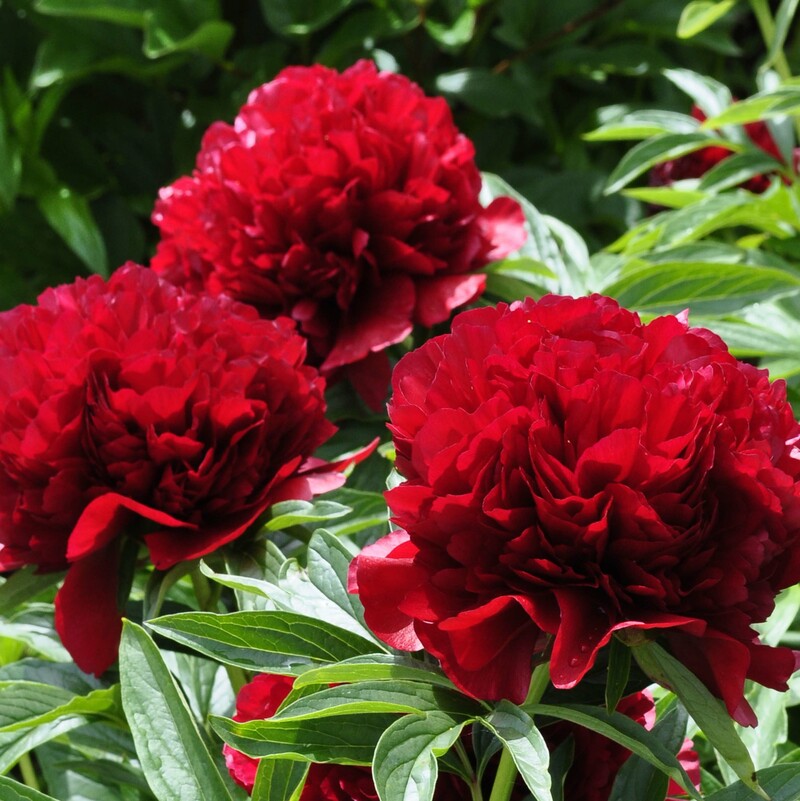
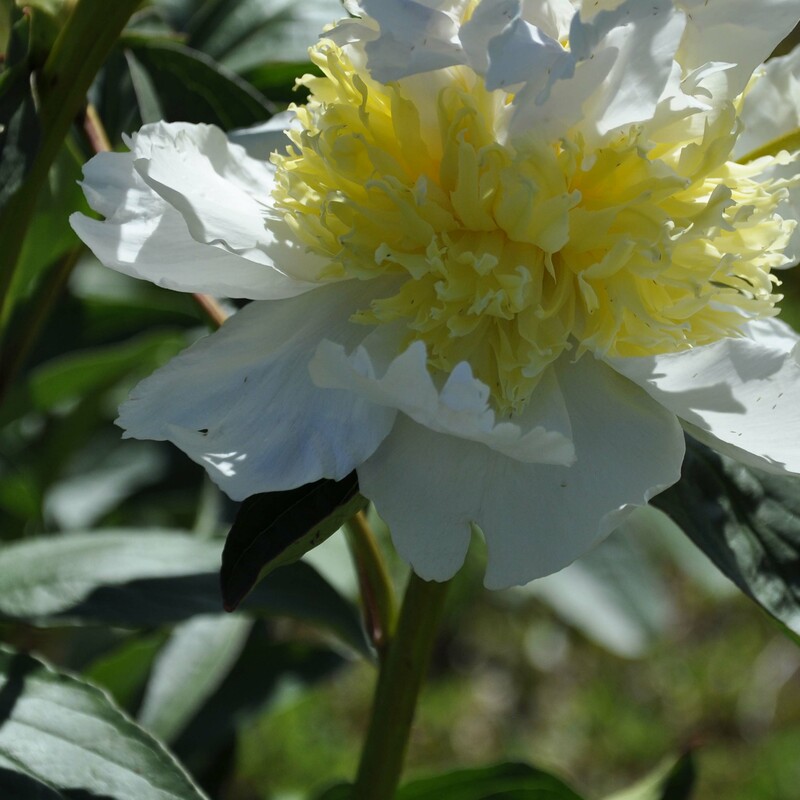
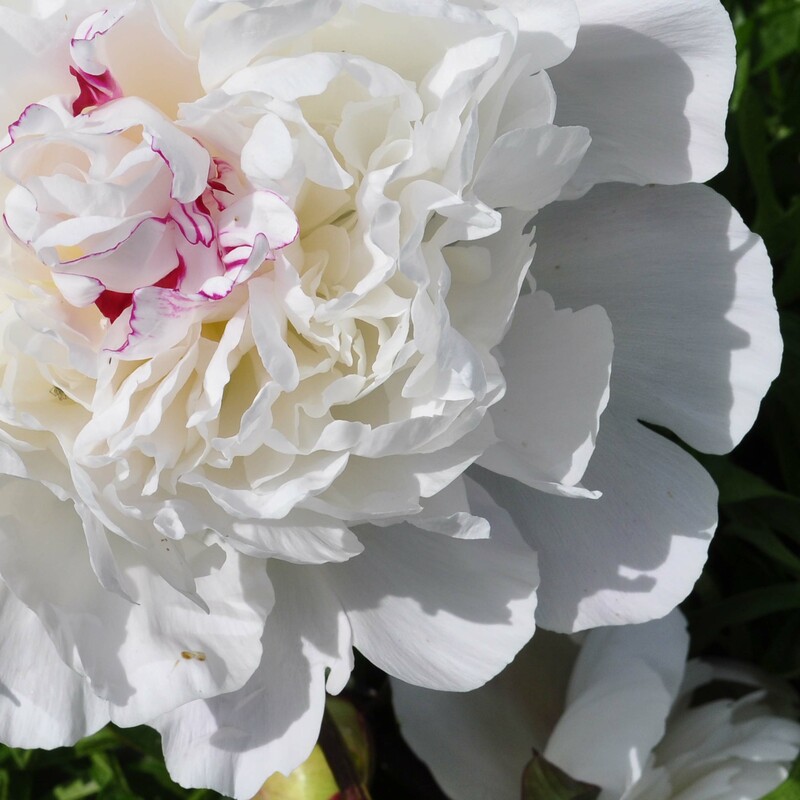
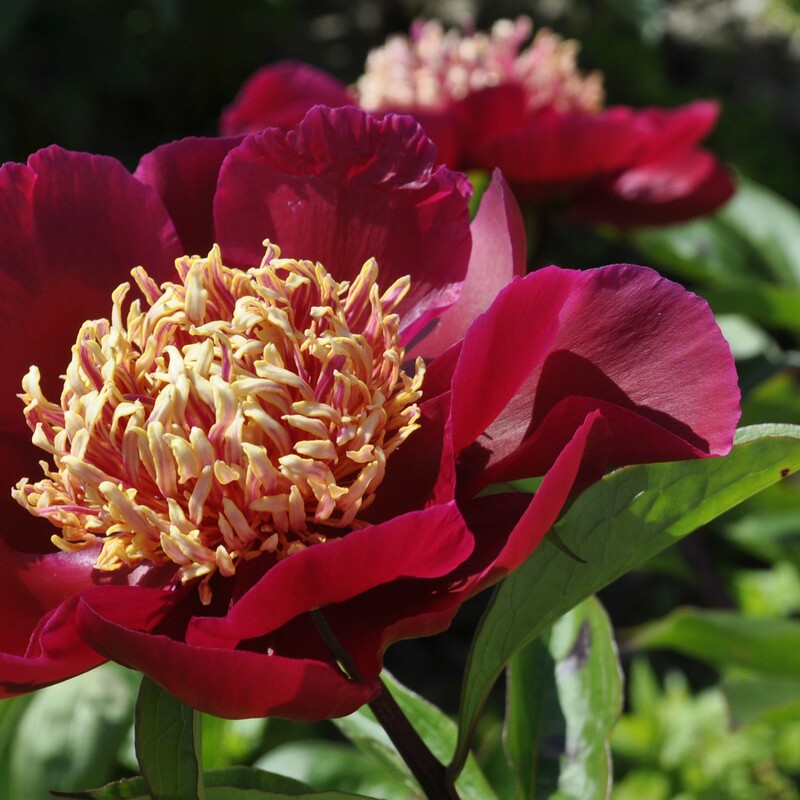
Above: Peony 'Eliza Lundy', 'Tom Eckhardt', 'Festiva Maxima' and 'Walter Mains'
PETALOIDS
Petaloids are found in the middle of the flower and look like slender petals. Originally stamens, these have evolved over time to become wider and are sometimes forked or ragged at the tops. Unlike stamens, petaloids are sterile.
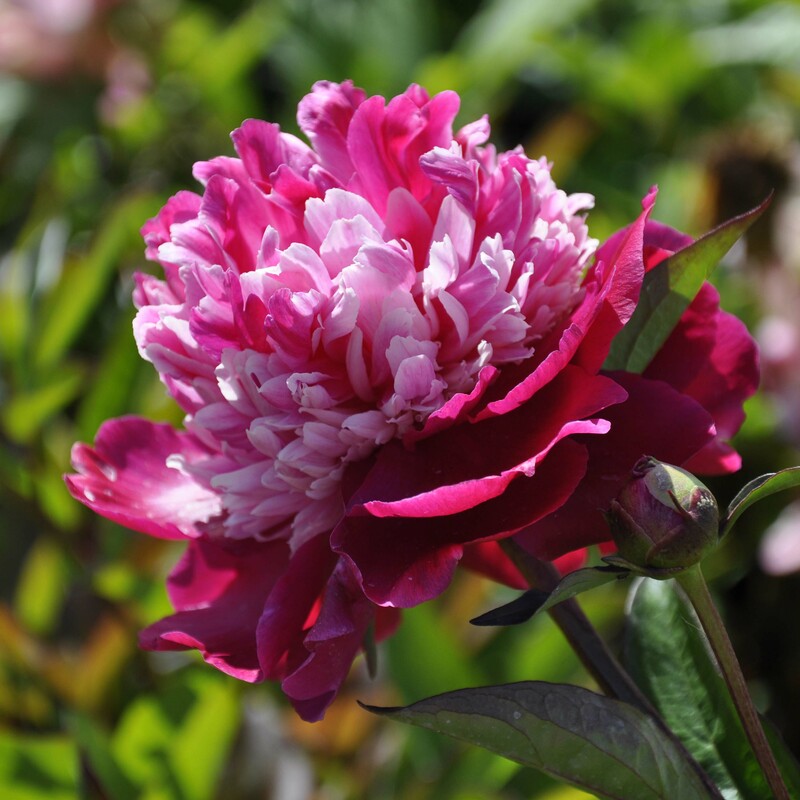
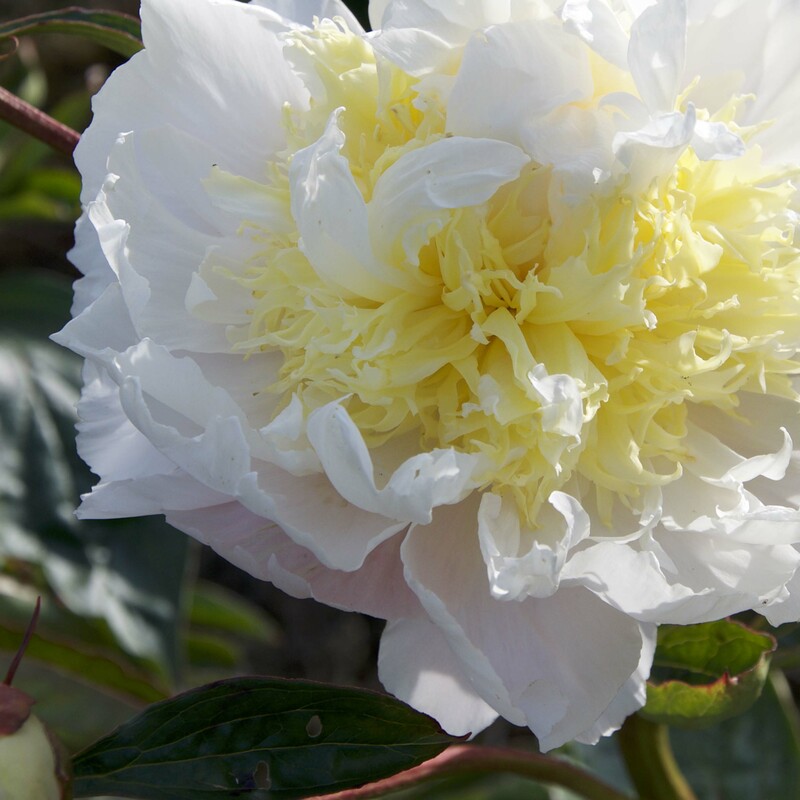
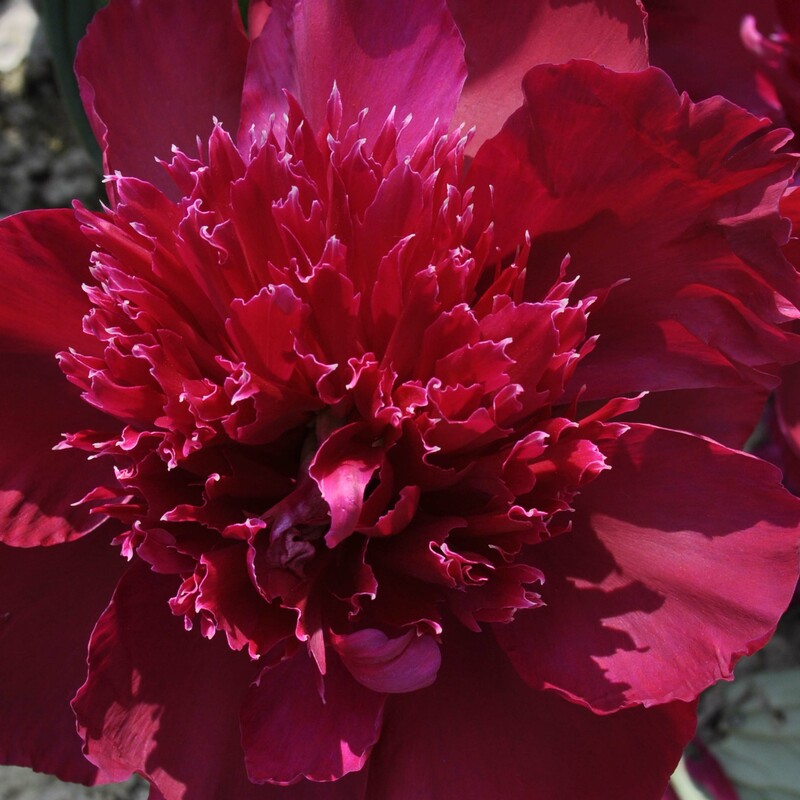
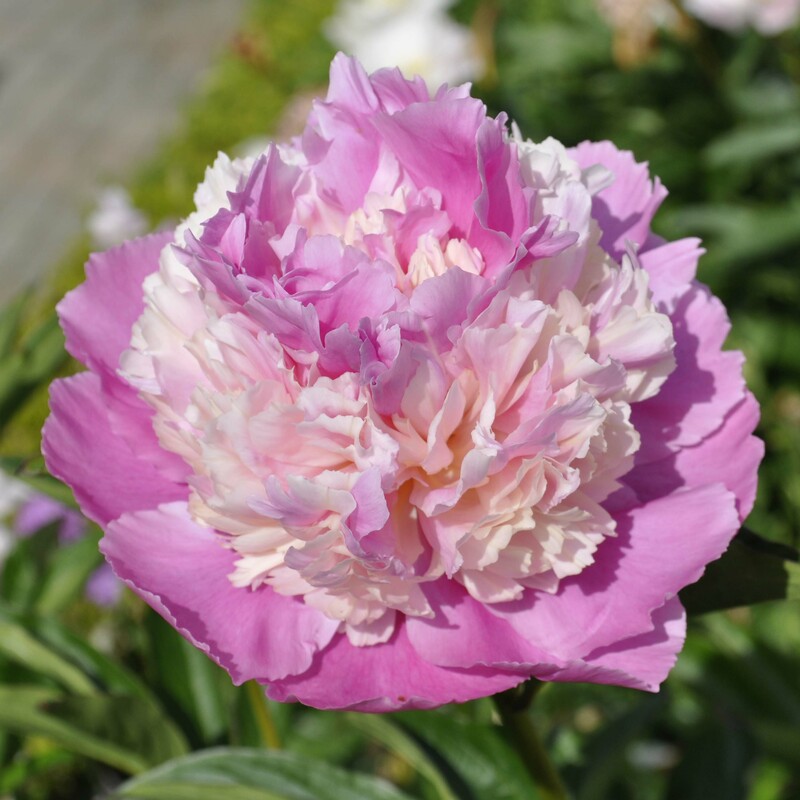
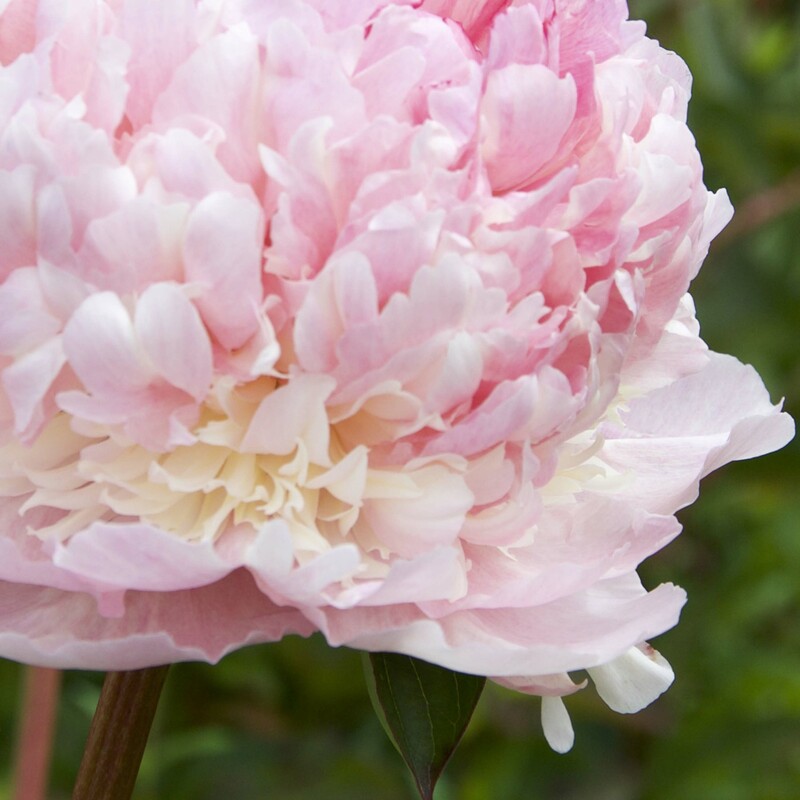
Above: Peony 'Nellie Saylor', 'Honey Gold', 'Hot Chocolate', 'Sorbet' and 'Raspberry Sundae'
STAMENS
These form a ring around the carpels and consist of male, pollen-bearing anthers on very fine, long filaments that can be a different colour.
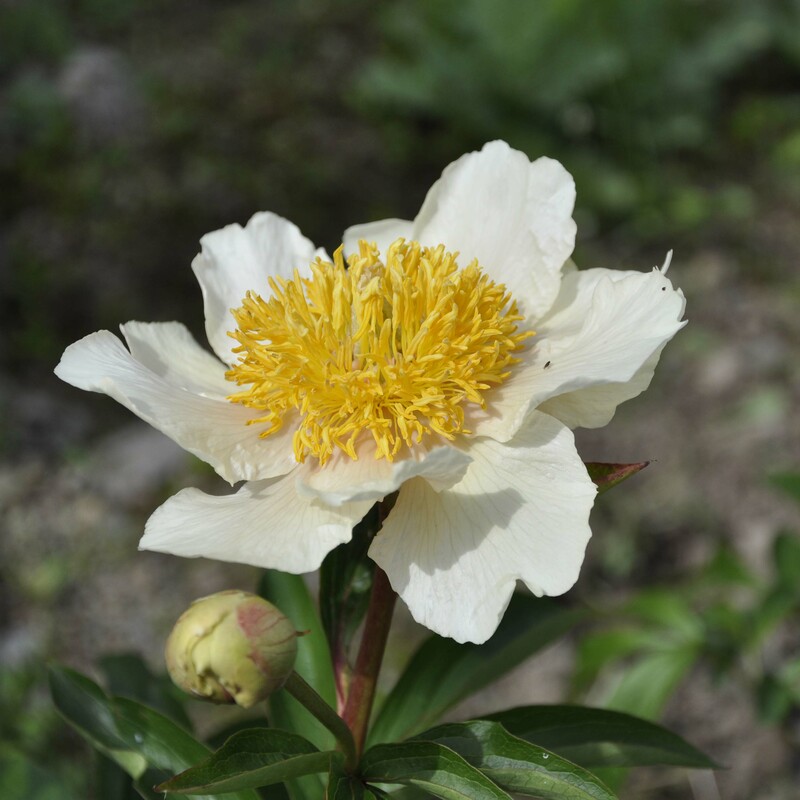
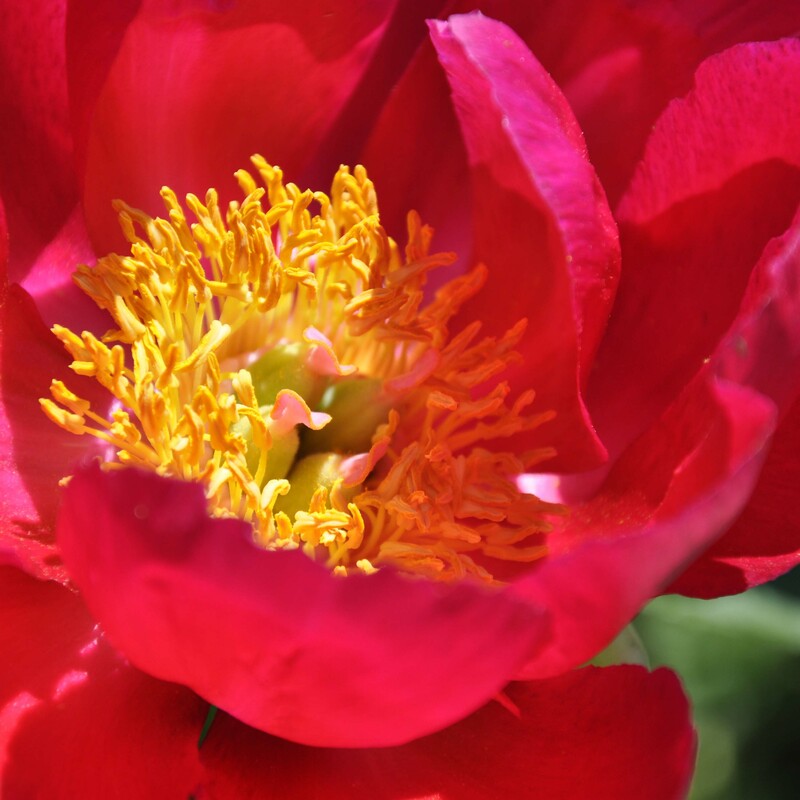
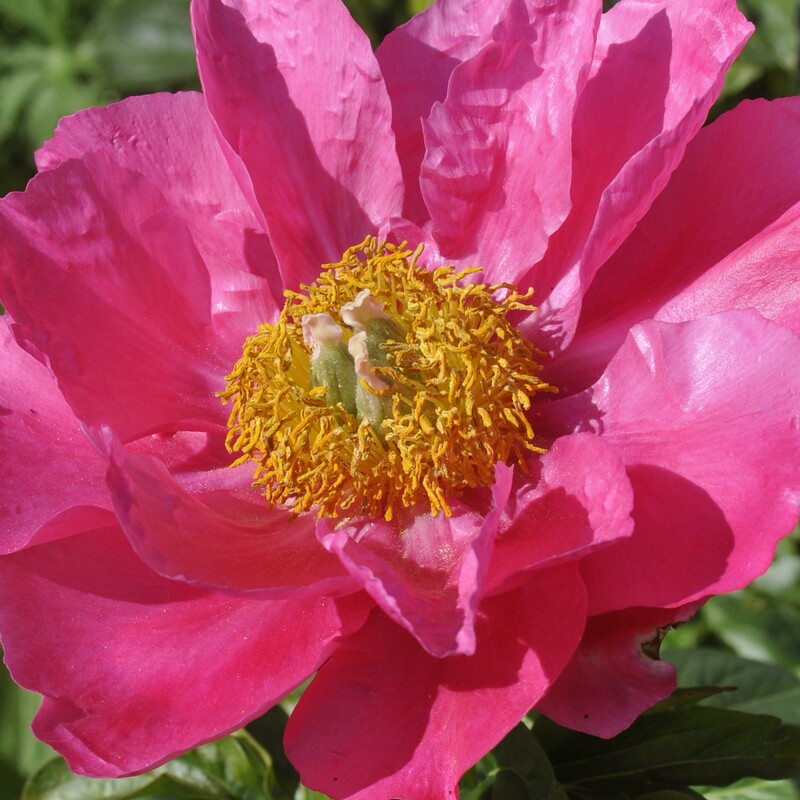
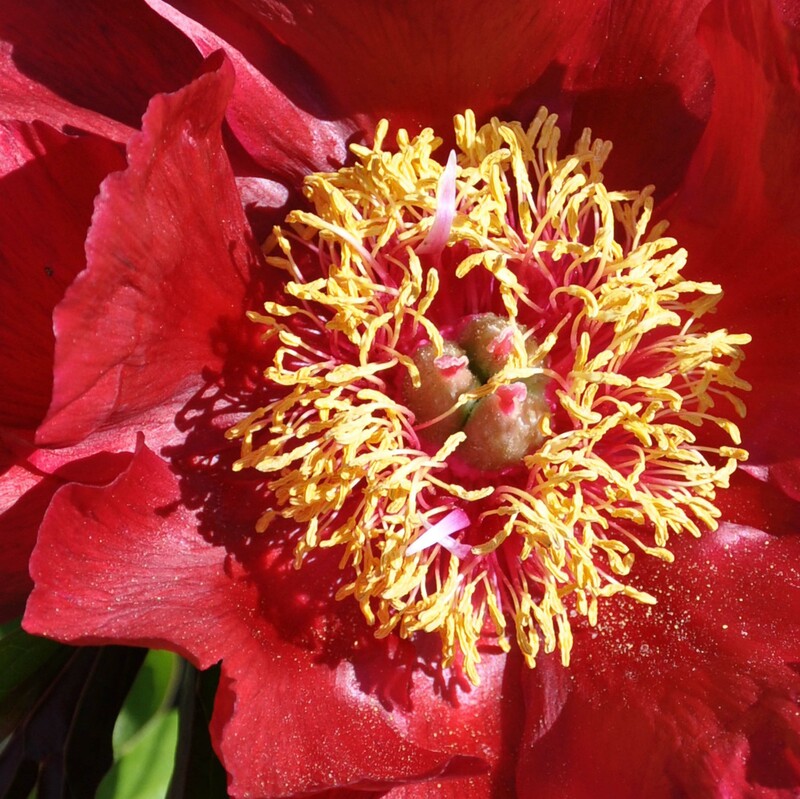
Above: Peony 'Starlight', 'Scarlet O'Hara', 'Paula Fay' and 'Tango'
STAMINOIDES
Are modified stamens with anthers that no longer produce pollen. Instead, they have become flattened, are usually ridged along the edges and often yellow, although the colour may change. They are usually a feature of Japanese peonies.
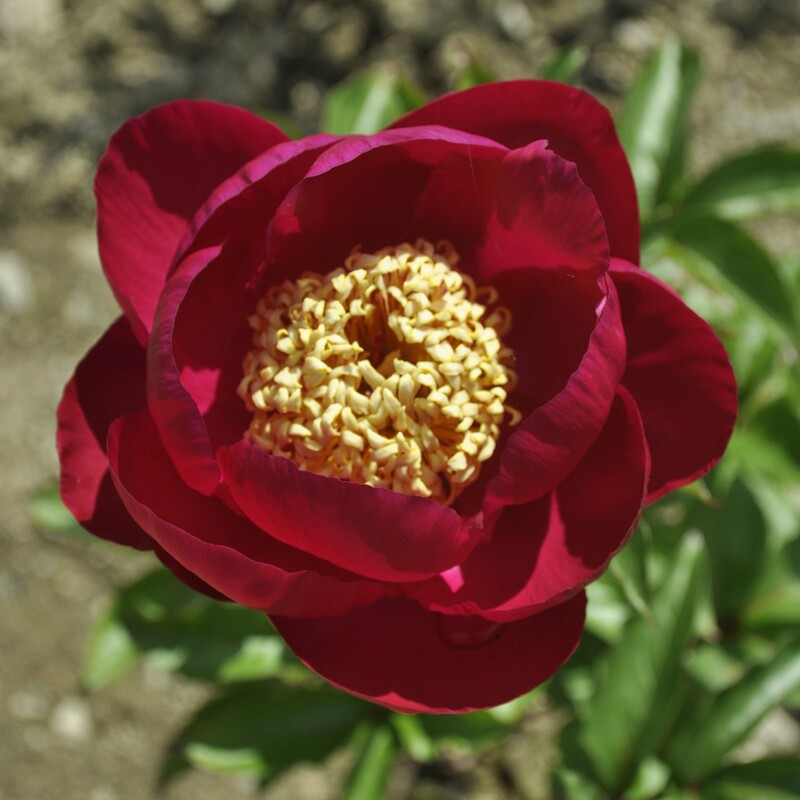
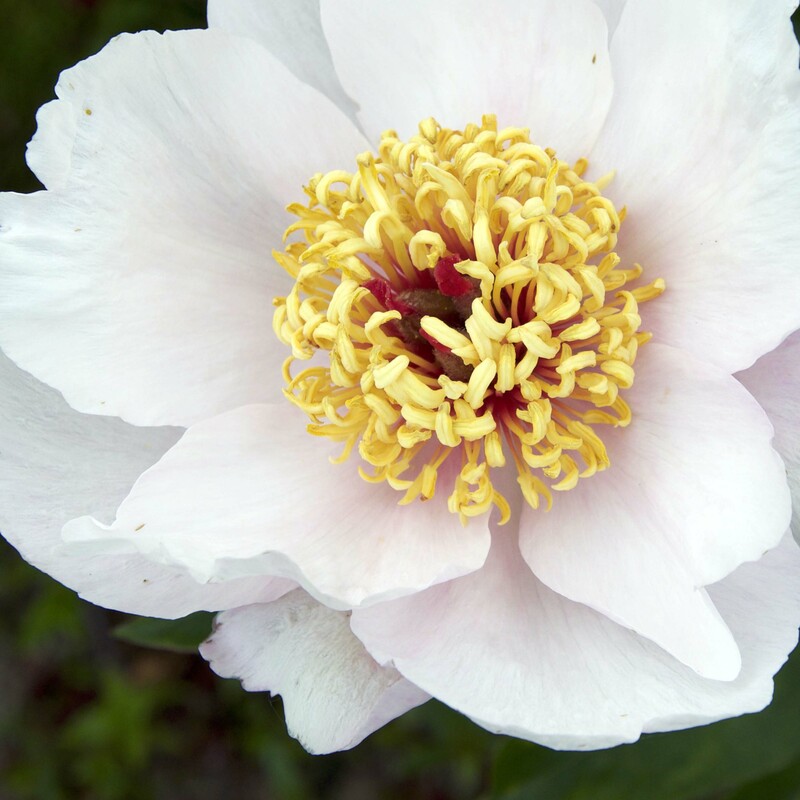
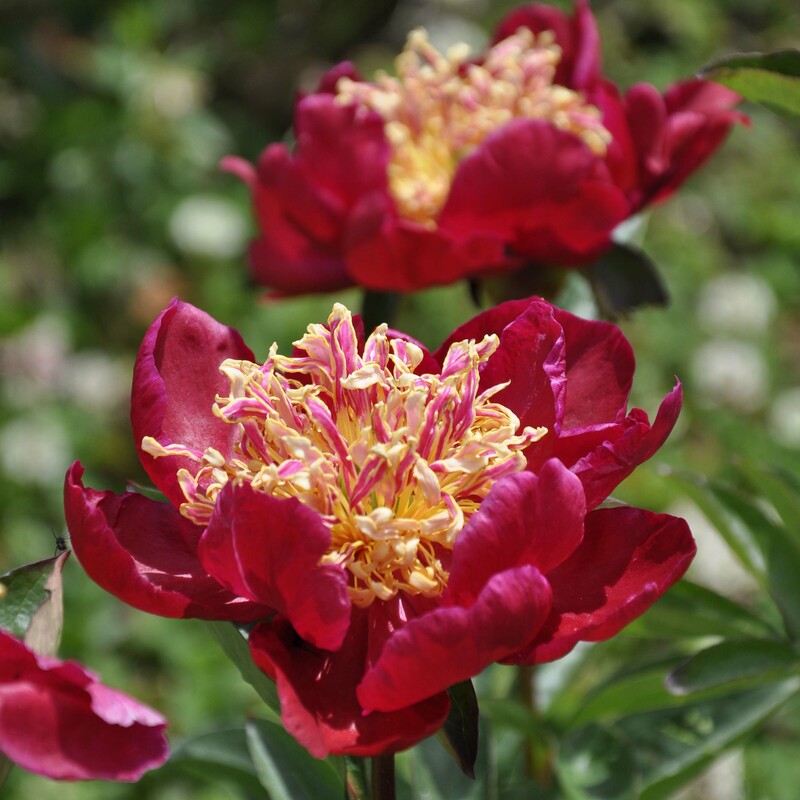
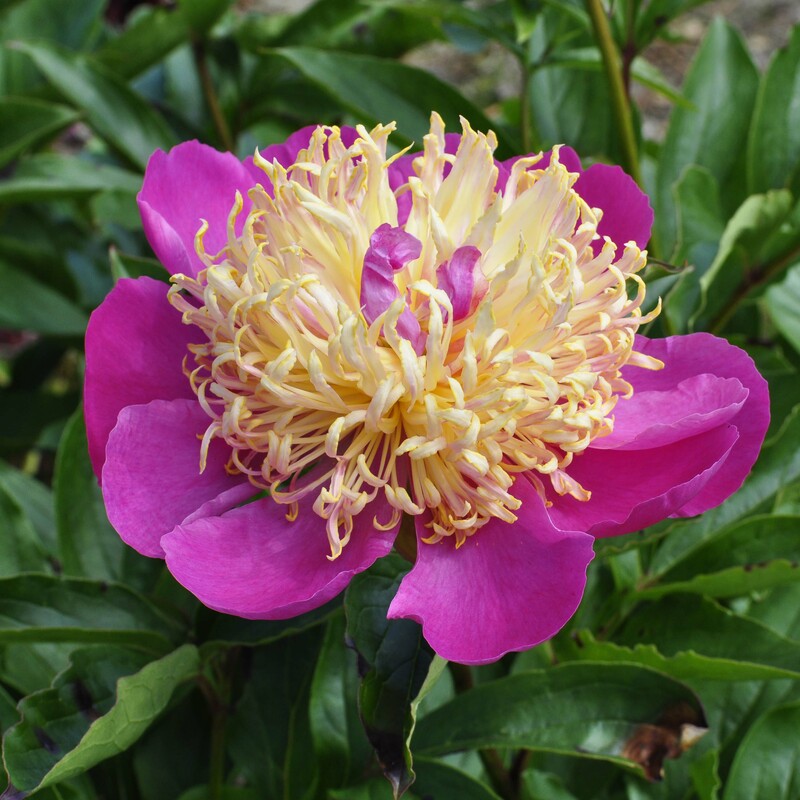
Above: Peony 'Suruga', 'Requiem', 'Sword Dance' and 'Tom Eckhardt'
For more information Peonies is a useful read












